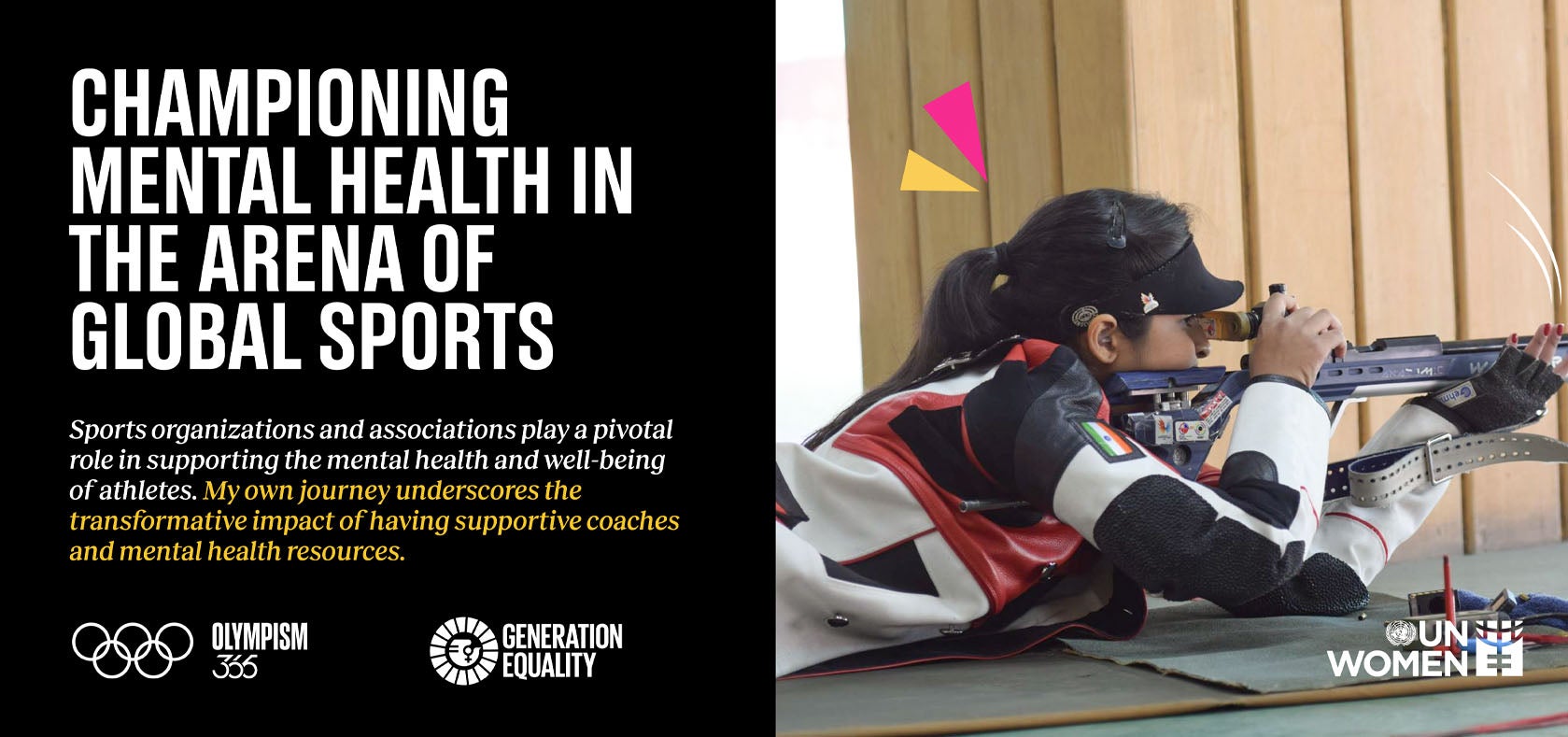Championing mental health in the arena of global sports
Date:
Author: Priyal Keni, 30 for 2030 Network

As a professional rifle shooter, every silent moment before a shot is a battle of focus, discipline, and mental strength. Yet, the significance of mental health in sports, particularly in precision sports like shooting, is often undervalued. While physical fitness garners widespread attention, the mental aspect often remains in the shadows, unnoticed and underrated.
Mental toughness is crucial in sports. Yet, it's not just about the ability to persevere, it's about maintaining psychological well-being. In the world of competitive shooting, where a millisecond's lapse in concentration can cost a medal, mental health is not just important; it's everything! Early in my shooting career, I learned the hard way that ignoring mental health could lead to burnout, inconsistency in performance, and even a loss of love for the sport.
The need to discuss and prioritize mental health in sports extends beyond individual athletes. It is about cultivating an environment where mental well-being is as integral as physical training. For instance, consider the immense pressure and scrutiny athletes face; without strong mental health support systems, these pressures can be overwhelming and detrimental.
Sports organizations and associations play a pivotal role in supporting the mental health and well-being of athletes. My own journey underscores the transformative impact of having supportive coaches and mental health resources. These resources helped me maintain not just my performance, but my overall well-being. However, such support is not ubiquitous. Many athletes suffer in silence, not knowing or having access to mental health resources.
There are practical steps sports organizations can take to change this:
- Acknowledge the importance of mental health as equivalent to physical health. This can be done through workshops, training sessions, and working towards a cultural shift in how mental challenges are perceived—not as a weakness but as a facet of sports that can be improved, just like physical fitness.
- Integrate mental health professionals into sports training regimes so that athletes have as much access to a psychologist as they do to a physiotherapist.
- Take proactive measures to ensure that the representation of female athletes in media also reflect the importance of mental health in sports. By highlighting stories of mental resilience or challenges overcome can help destigmatize these discussions.
The integration of mental health support into sports training is no longer a luxury but a necessity. As we look towards events like the Paris 2024 Olympic Games, it is imperative that sports organizations worldwide continue to evolve and treat mental health as diligently as physical fitness. By supporting the mental well-being of athletes, we not only enhance their performance but also enrich their lives, setting a standard for future generations in sports and beyond.